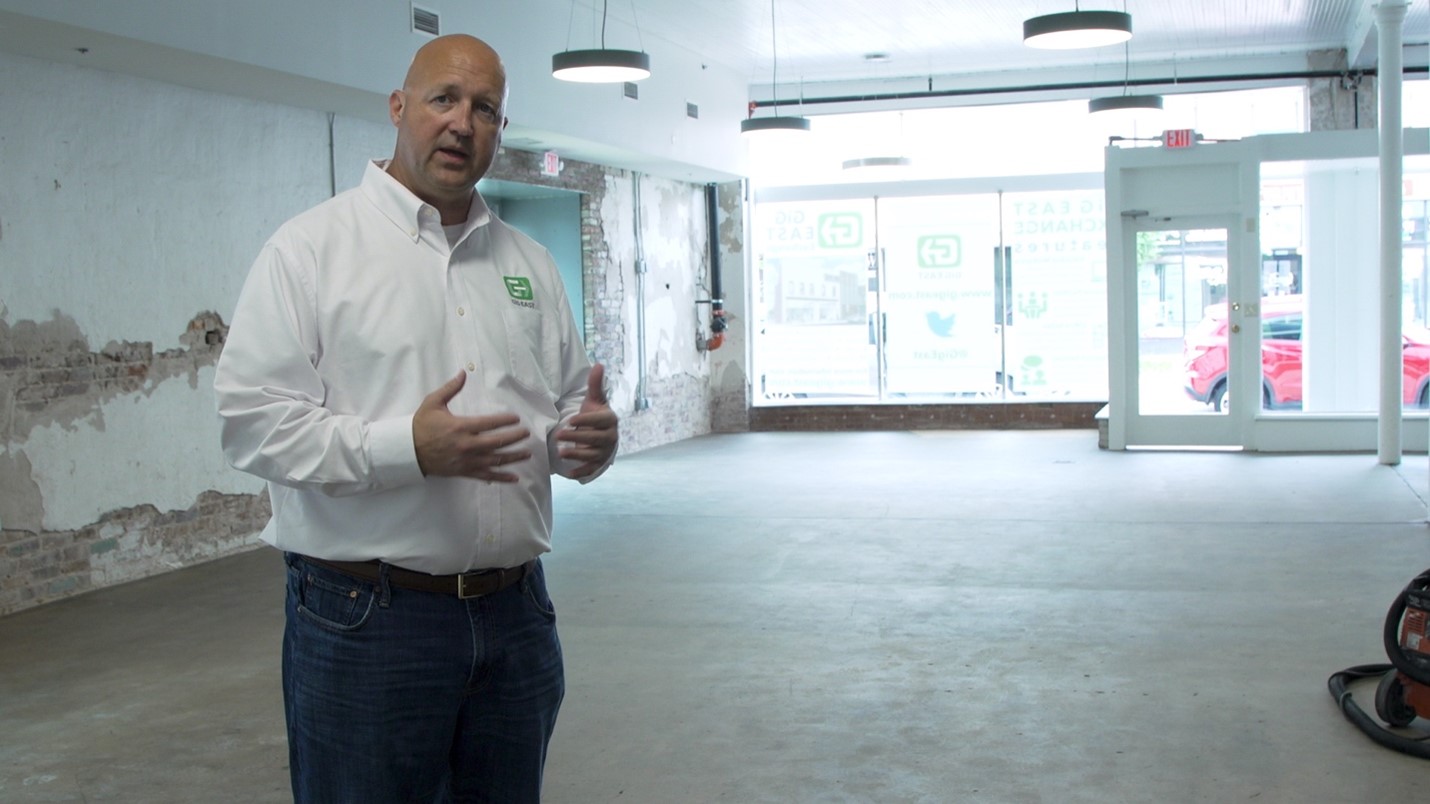The Challenge
In recent years, many rural areas saw sectors such as agriculture, manufacturing, mining, and lumber decline. The resulting loss of jobs and population created a difficult situation for rural areas. Many rural areas seek to diversify their economy by targeting efforts around outdoor tourism and entrepreneurship, which is the creation of new businesses and ideas that can offer a powerful driver of the local economy. Entrepreneurship is distinct because it can create wealth and retain talent more so than job creation alone. However, entrepreneurship can be risky and difficult without certain supports that may be more difficult to provide in rural communities, such as a supportive culture, capital availability, and connections to other entrepreneurs and industry partners.
Entrepreneurs in rural communities face different challenges than those in urban areas. A less dense population means there may be fewer resources available for startups, including affordable office space, access to mentorship and training, or even connecting with relevant stakeholder or market networks.
Pictured: Entrepreneur Shawna Moses, CEO and Founder of Kinky Tresses. Moses benefited from the support of the RIoT Accelerator Program.
The Solution
Coworking spaces are popular in metropolitan areas but can also serve as a solution to many challenges that entrepreneurs may face in a rural area. Wilson is one such rural community with a solution—a coworking space called the Gig East Exchange, located in the former Wilson tobacco exchange building. Gig East offers office and conference space for entrepreneurs and remote workers to work and meet. Gig East is also home to the RIoT Accelerator Program that serves startups by providing training and mentoring over a 12-week guided program. They also provide participants with access to a network of more than 75 industry partners, filling in the connections gap facing some rural entrepreneurs. Gig East hosts the Gig East Summit, a conference centered around entrepreneurship, rural innovation, and arts.
The goals of Gig East include:
- Making Wilson a more vibrant community and driving economic development around the space.
- Supporting entrepreneurs to generate new firms, innovation, and economic development.
- Helping to recruit and retain creative talent in Wilson.
- Providing space where residents can telecommute for work connected to firms around the world – making small towns more viable in the long term.
The Players
Darren Smith, the manager of Gig East, says that this collaborative began with the question “How can we support people to be more entrepreneurial?” RioT, an economic development nonprofit based in Raleigh, partnered with the City of Wilson and Greenlight to create the Gig East Exchange. Greenlight, the city’s broadband utility, runs Gig East, and the City of Wilson owns the former tobacco exchange building, while RIoT provides much of the programming and industry connections. Their business model is to be self-sustaining with rents and other revenue but is not expected to generate profit for private investor.
Pictured: Darren Smith, Manager of the Gig East Exchange giving a tour of the Gig East building.
The Promise
Several other rural places in North Carolina are pursuing their own coworking spaces. Caswell County created CoSquare, which is a renovated drug store space in Yanceyville. CoSquare provides high-speed internet, as well as the opportunity for workers and entrepreneurs to connect. They specifically hope to support agriculture producers and encourage collaboration between all user groups. Warren County also opened a coworking space called Frontier Warren in partnership with the Research Triangle Foundation, which has an existing Frontier innovation campus at Research Triangle Park. Rural coworking spaces like Gig East may be even more important in light of the COVID-19 pandemic, which accelerated the trend toward more employees working from home.
Learn more from these resources:
- Co-Working Spaces Provide More than Just a Place to Work
- Why Small-Town Co-Working is a Great Idea
- How Coworking Spaces are Helping the Startup Culture Thrive


